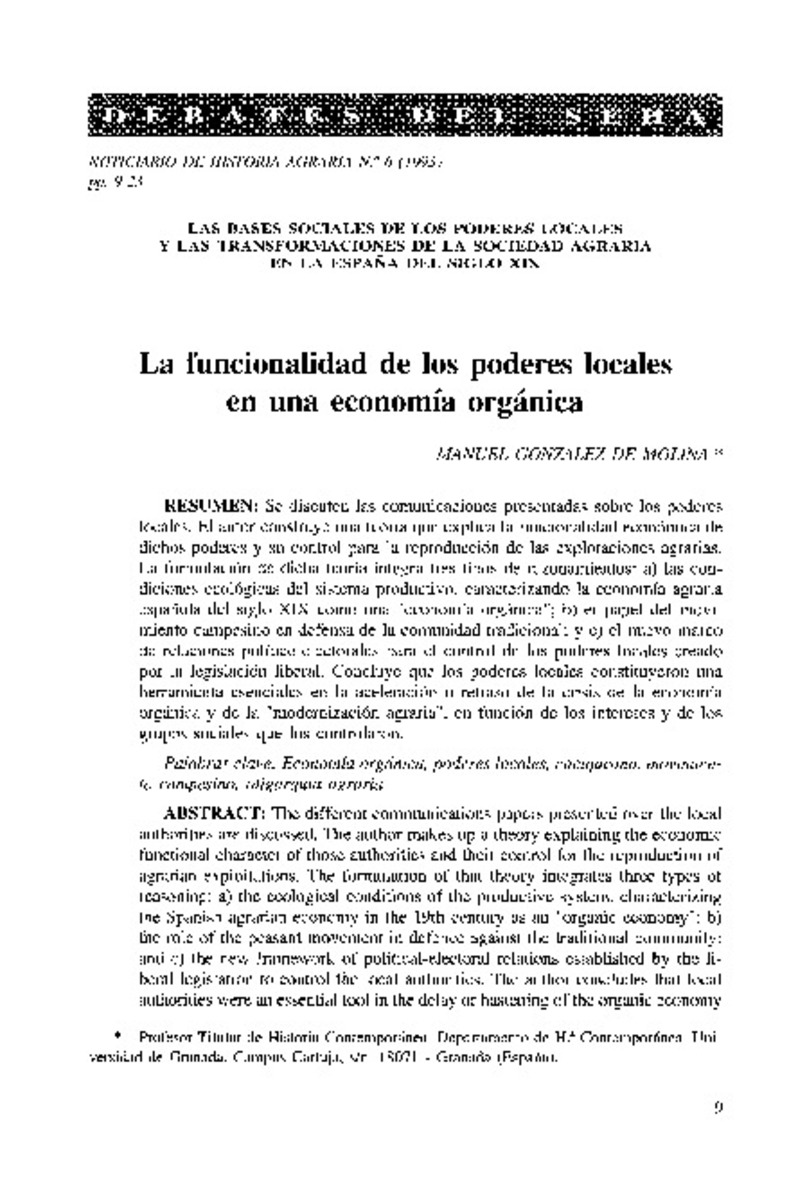Mostrar el registro sencillo del ítem
La funcionalidad de los poderes locales en una economía orgánica
| dc.contributor.author | González de Molina, Manuel | |
| dc.date.accessioned | 2016-07-11T16:22:42Z | |
| dc.date.available | 2016-07-11T16:22:42Z | |
| dc.date.issued | 1993-04 | |
| dc.identifier.issn | 1139-1472 | |
| dc.identifier.uri | http://hdl.handle.net/10234/161600 | |
| dc.description.abstract | The different communications papers presented over the local authorities are discussed. The author makes up a theory explaining the economic functional character of those authorities and their control for the reproduction of agrarian exploitations. The formulation of that theory integrates three types of reasoning: a) the ecological conditions of the productive system, characterizing the Spanish agrarian economy in the 19th century as an "organic economy"; b) the role of the peasant movement in defence against the traditional community; and c) the new framework of political-electoral relations established by the liberal legislation to control the local authorities. The author concludes that local authorities were an essential tool in the delay or hastening of the organic economy and "agrarian modernization" according to the interests and social groups which controlled them. | ca_CA |
| dc.format.extent | 15 p. | ca_CA |
| dc.format.mimetype | application/pdf | ca_CA |
| dc.language.iso | spa | ca_CA |
| dc.publisher | Sociedad Española de Historia Agraria (SEHA) | ca_CA |
| dc.relation.isPartOf | Historia agraria: Revista de agricultura e historia rural, n. 6, p. 9-23 | ca_CA |
| dc.rights | © SEHA | ca_CA |
| dc.rights.uri | http://rightsstatements.org/vocab/InC/1.0/ | * |
| dc.subject | Organic economy | ca_CA |
| dc.subject | peasant movement | ca_CA |
| dc.subject | agrarian oligarchy | ca_CA |
| dc.title | La funcionalidad de los poderes locales en una economía orgánica | ca_CA |
| dc.type | info:eu-repo/semantics/article | ca_CA |
| dc.rights.accessRights | info:eu-repo/semantics/openAccess | ca_CA |
| dc.relation.publisherVersion | http://www.historiaagraria.com/numero.php?n=6 | ca_CA |







